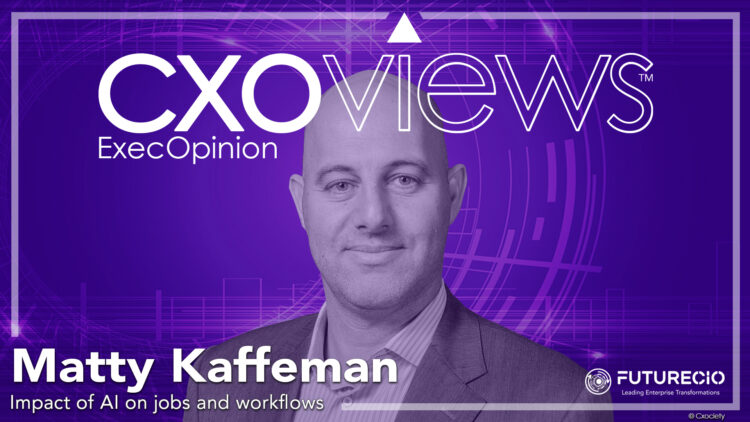Since the early days of mankind, jobs performed by humans have almost always been at risk with each innovation. From the invention of the sewing machines in the 1850s to the invention of electromechanical automatic telephone exchange, jobs are only as permanent as the next innovation that will automate it.
So, it is a natural apprehension that with the introduction of digitalisation and workflow automation, some jobs are now on the line.
But what history has also told us is that even as current roles find themselves replaced as a result of innovation new roles will be invented as a result of the same innovation. The onus is on each employee to take up the challenge or retire.

In coining the term ‘technological unemployment’ Economist John Meynard Keynes posited a future he dubbed ‘age of leisure and abundance’ where 15-hour work weeks become the norm – not out of necessity but because we wouldn’t know what else to do with ourselves.
When that day comes, it would be good to find a hobby.
The same apprehensions are coming to the fore once more with the rise of machine learning, language models and artificial intelligence, and powering all of these possibilities is the availability of massive amounts of data.
It is the ability to tame the data explosion that has fuelled the success of data-driven organisations like McDonald’s, Google, Coca-Cola, DBS Bank and Uber.
How AI impacts your job and role today
So how will AI impact the current job roles and responsibilities within the organisation? This is the question that permeates many of the discussions Cxociety editors have had since 2023. One AI derivative that is seen as being one of the most impactful in 2024 is generative AI (GenAI).
Matty Kaffeman, vice president for North Asia and Korea at Verint says the advent of generative AI has removed some of the friction in processing vast content, creating insights and answers, bringing about significant transformation in the workplace by automating routines and eradicating repetitive tasks.
He cited customer service as an example, where GenAI will empower agents to redirect their focus towards more intricate, strategic initiatives that demand human ingenuity and complex problem-solving abilities.
Among the use cases include:
- Funnelling enquiries by priority and complexity
- Summarising calls on behalf of humans to free up their reporting time
- Analysing customer data to provide agents with context and recommendations background on the customer for appropriate follow-up
- Enabling business managers to analyse data at an exponential rate, facilitating real-time demand projections
He conceded, however, that even with all its ‘promised’ efficiencies, the implementation of AI in customer service comes with its risks. “If not developed with proper oversight and ethical considerations, AI systems can perpetuate bias, discrimination, and unfair treatment of individuals,” he opined.
New skills and competencies
What use is technology if one does not have the competency to use it? It can be argued that technology today is easier to use – more intuitive and less intimidating. However, to what extent are we able to use the technology to its full potential today?
Accenture estimates that up to 40% of working hours will be impacted by large language models (LLMs). New roles will come about because of GenAI uptake. WEF’s Future of Jobs Report 2023 predicts that AI and machine learning specialists, data analysts and scientists, and digital transformation specialists are the most prominent emerging roles.
Kaffeman believes that as the workplace evolves, AI will become an inseparable part of our day-to-day.
He posited that this evolution will require a workforce that is not only flexible but also eager to embrace upskilling. Understanding new competencies, particularly those related to AI technology and its applications, will become an essential component of professional development.
He concedes that not everyone would become an AI or machine learning coder. Employees, therefore, should develop their digital literacy by experimenting with new AI functionalities and critical thinking for faster problem-solving.
“This can help employees understand how to streamline their work processes, so they can focus their time to build relationships and handle more complex situations that require a human touch while improving aspects of an organisation’s deliverables,” he continued.
How AI impacts the workplace
Every technology carries risks, challenges, and opportunities. One analyst FutureCIO spoke to commented that “if CFOs are concerned about the unbridled cost that cloud brought with it – wait til you see the bill that comes with AI!”
In addition to costs, the use of AI carries with it potential ethical and social implications, including intellectual property and fraud.
“Any new technology opens the door for risk, so the key is ensuring that developments adhere to regulation and standard to protect those that have created the technology and those that the technology is created for,” cautioned Kaffeman.
He cited the rapidly changing landscape of AI regulation as an example of a challenge. “There currently is no clear consensus yet on what companies developing and deploying AI will have to audit, monitor and comply with, though some common themes are emerging,” he continued.

“Countries will likely converge around the EU AI Act and/or NISE requirements with local additions. Moreover, multiple ongoing lawsuits with Open AI on the right to use web-sourced data for LLM training can potentially disrupt future foundation model availability.”
Matty Kaffeman
“Consider the scenario that an agent generally takes around a minute to two to summarise a call, now with AI calls can be summarised and cut down the agent’s manual labour to 20 seconds, so they could focus on taking customer calls instead,” he called out.
New jobs and improving employee satisfaction
The WEF Future of Jobs 2023 report reveals that AI is expected to be adopted by nearly 75% of surveyed companies and is expected to lead to high churn – with 50% of organisations expecting it to create job growth and 25% expecting it to create job losses.
“As businesses can automate everyday routine and tedious chores through AI, this would reduce the learning curve needed to onboard new joiners from 6 weeks to 2 weeks,” said Kaffeman.
He outlined the benefits of this: For executives, this frees up their time to make high-value, strategic decisions from training, while in the meantime helping their resource planning as agents can take customer calls quicker.
“Additionally, as AI-powered chatbots, virtual assistants and partners of the wider ecosystems can handle customer questions and support, this would allow employees to concentrate on higher-value interactions and complex problem-solving,” he explained. “This can ensure organisations would get the best bang for their buck and enhance the customer experience by providing faster and more efficient customer service.”
AI’s impact on workflows

In 2022, OpenAI introduced us to the possibilities of GenAI, and these became evident in the nearly widespread experimentations in 2023. Dave Wright, chief innovation officer at ServiceNow, predicts that in 2024 GenAI will see tangible business impact.
“I believe we’ll look back on 2024 as the year we deployed AI not just to help do our current work better, but to pioneer entirely new and transformative ways of working,” he opined.
Verint’s Kaffeman concurred adding that AI showed the possibilities AI’s automation attribute can be used to combine workflows, connect back-end systems, and ultimately optimise the workflow process.
In a customer service context, he posited, client-facing roles can cut back the time needed to reach out to clients and customers for information, reminders, etc., AI already can suggest ways for the agent to improve their work or customisation. “This increases efficiency and productivity while reducing manual errors,” he added.




